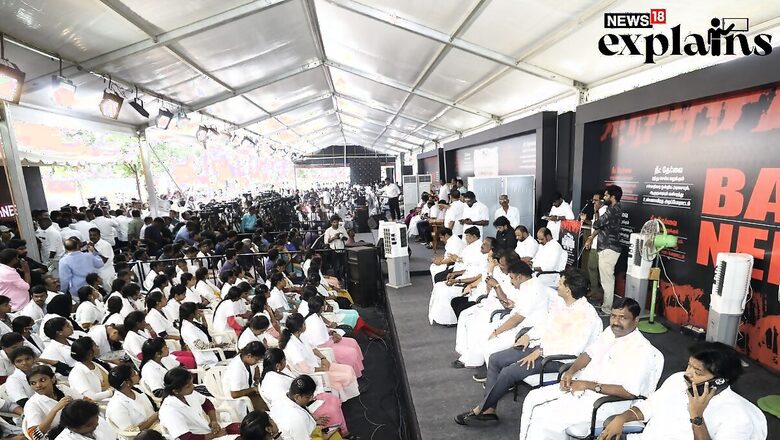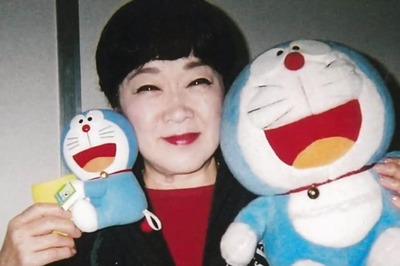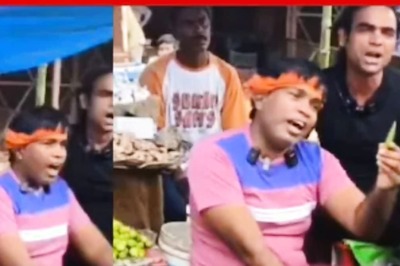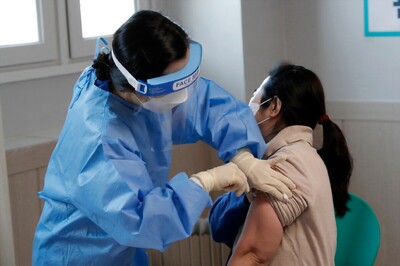
views
The opposition against the National Entrance-cum-Eligibility Test (NEET) gathered momentum yet again in Tamil Nadu as the ruling DMK held a day-long hunger strike seeking abolition of the medical entrance exam. Tamil Nadu Chief Minister MK Stalin assured all efforts to ensure NEET exemption for the state.
Stalin said the DMK will not stop till Tamil Nadu gets exemption from the central qualifying test for medical courses. Meanwhile, the opposition BJP slammed the ruling party in the state for “politicising” NEET and said that the exam came into existence during the Congress-led UPA regime.
Tamil Nadu has been opposing the medical entrance examination on the grounds that a common test harms the prospects of state board students.
Why the NEET Issue Resurfaced?
Tamil Nadu’s ruling party DMK held hunger strike throughout the state against NEET. The DMK is opposed to NEET, saying it is against social justice, insisting it favours the urban students and those having access to coaching centres. The party is also opposed to entrance exams for professional courses.
The NEET issue escalated dramatically after a 19-year-old boy died by suicide in Chennai after failing to clear the NEET medical entrance exam. A day later, the 48-year-old father was found dead at his home.
Jagadeeswaran, who passed Class XII in 2022 with 427 marks, was unable to clear the entrance test in two attempts. Jagadeeswaran killed himself on Saturday, the same day that Tamil Nadu Governor RN Ravi, who is opposed to legislative attempts to take the state out of the ambit of the national entrance exam, said he would never sign in favour of the state’s anti-NEET bill.
How Did the Issue over NEET Originate?
Prior to NEET, Tamil Nadu used to conduct its own Common Entrance Test (CET) for admission to medical colleges in the state. In 2006, the state government enacted the Tamil Nadu Regulation of Admission in Professional Courses Act, according to which the admission to such courses shall be based on marks obtained by the students in qualifying examinations held by the State Board for Class XII.
In December 2010, the Medical Council of India (now replaced by National Medical Commission) issued a notification making NEET mandatory for admission to medical courses. A similar notification was issued by the Dental Council of India in 2012 and a common entrance was brought for admission to homoeopathy and Indian medicine courses as well.
NEET has been conducted since 2013. NEET was implemented across the country based on a Supreme Court ruling in 2016. But the strong opposition to the exam was triggered by the suicide of a 17-year-old Dalit girl Anitha in 2017, who despite being a school topper couldn’t clear the NEET exam.
Why Tamil Nadu Opposes it?
Both DMK and AIADMK are opposed to NEET in the state. The Tamil Nadu Assembly, both during the previous AIADMK regime and the present DMK rule, had adopted resolutions against NEET.
The Tamil Nadu government had claimed that NEET takes away the autonomy of states to make decisions regarding education. Those opposing the NEET exams have called it discriminatory against those from rural backgrounds or state boards.
During an event in the state, CM Stalin reiterated that his party has been opposing NEET ever since it was introduced. He recalled medical admissions earlier being based on Class 12 marks and that it benefited students irrespective of their community status.
Critics have also argued that NEET focuses on marks disregarding the importance of student quality and aptitude.
Tamil Nadu Govt Issued Bills
The AIADMK government brought two bills in 2017 to seek state autonomy in medical admissions. However, the Bills were returned by the President and subsequently lapsed.
Then the Tamil Nadu government under DMK introduced a Bill in 2021 to exempt the state from NEET, but the Tamil Nadu Governor has refused to give his assent to it. The assembly readopted the Bill within days and the Governor said that the Bill would be sent for Presidential assent. The Bill is currently pending with the President for her assent.
Level Playing Field?
The field of medical education in the country is already skewed with 85% of seats in government-run medical colleges across states already reserved for domicile students while only 15% of them being all-India quota seats.
If a bill is introduced ensuring that 85% of seats are filled through Class XII marks rather than a common entrance test, then there are assumptions that it will be riddled with biases and not be a level playing field.
Tamil Nadu already has the highest reservation quota (69%) among all other states. The policy puts upper-caste students at a relative disadvantage as the general seats are very few. The state is already seeing an exodus of deserving students.

















Comments
0 comment